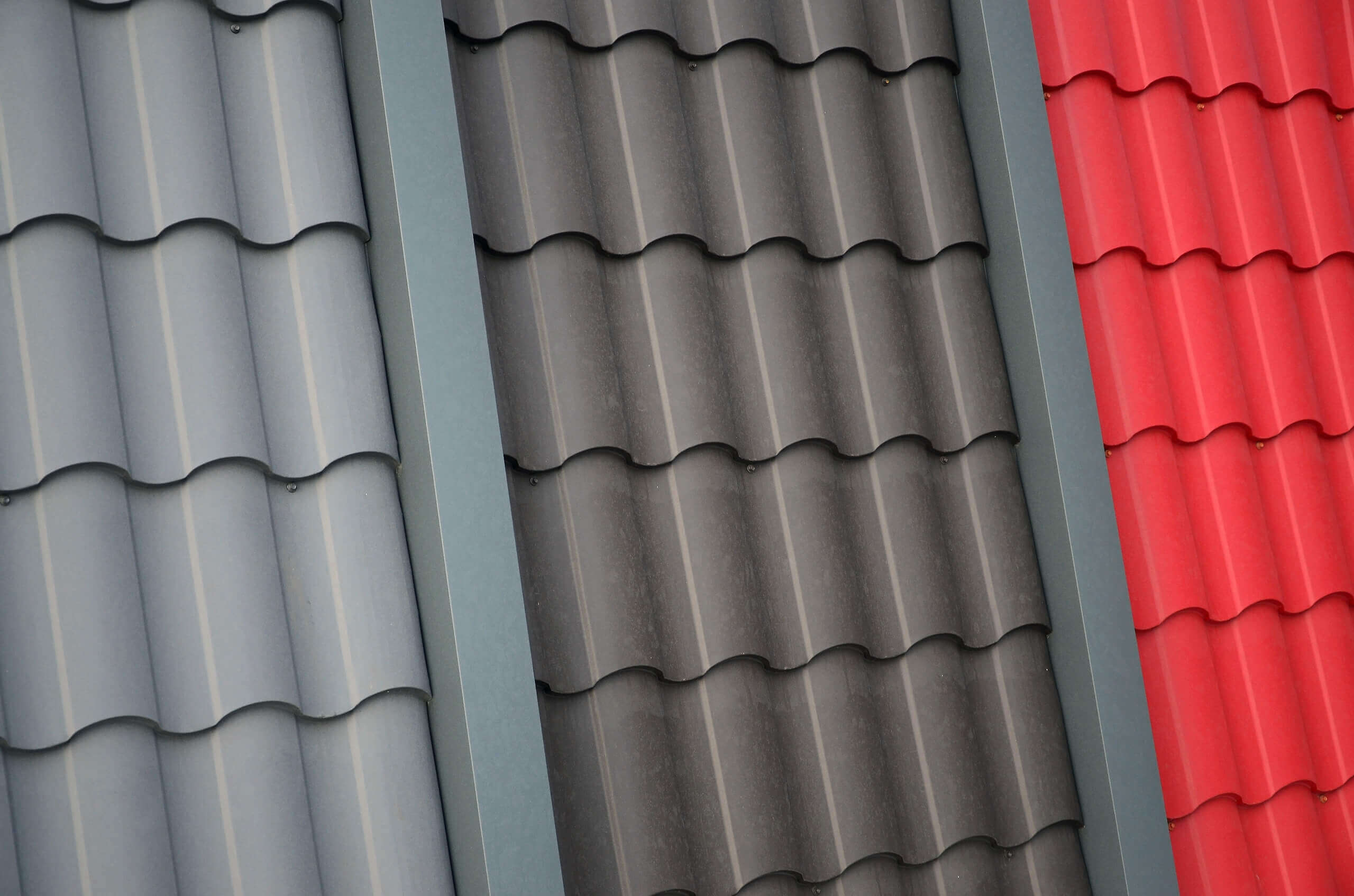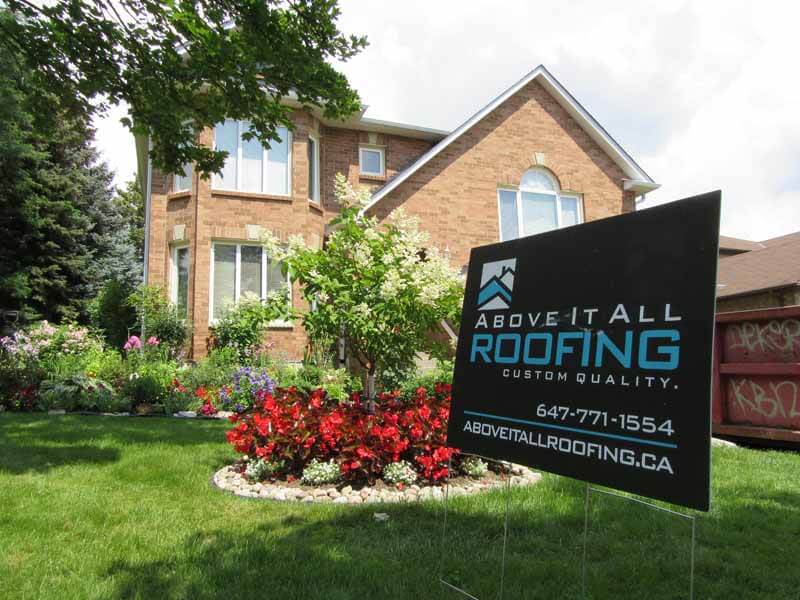This complete guide to the most popular roofing material is all the research you’ll need to consider the best options for the residential roofing shingles in 2022.
In this guide, Above It All Roofing will take a look at the most common roofing options: asphalt shingles, cedar shingles and shingles, metal shingles and standing seam metal roofs, concrete, clay and fibre cement shingles, natural stone and synthetic slate/synthetic shingles, and the latest BiPV solar shingle options.
Types of Roofing Materials
The material options below cover more than 95 percent of all residential roofs in Canada. So unless you have something out of the ordinary in mind, like BiPV solar shingles – the options you’re considering are likely to be viewed below.
- Asphalt Shingles
- Clay and Concrete Tiles
- Fibreglass Composition Shingles
- Metal Roofing
- Natural Stone Slates
- Synthetic Roofing Products
- Wood Shingles and Shake
- Tesla Solar Tiles
Asphalt Shingles
More than 70% of all single-family homes in Canada are covered with asphalt shingles, although that number gradually decreases due to more energy-efficient and durable materials such as metal.
Asphalt (composite) shingles dominate the market because they are affordable, offer many attractive options, and protect homes well from the elements.
There are two basic types of asphalt shingles:
- Fibreglass shingles consist of a fibreglass mesh coated with asphalt and granules that impact variety of colors and reflect some of the sunlight. Fibreglass shingles are lightweight and tear-resistant.
- Old organic asphalt shingles (virtually nonexistent today) are usually made of paper, organic material impregnated with bitumen and covered with granules. These shingles are much heavier and more difficult to work with than fibreglass shingles, but they provide better stability in high winds. Although you can still notice them on many roofs, organic shingles have largely been discontinued in the last decade. Why? Manufacturers have stopped producing organic shingles because they tend to dry out, reduce water resistance and absorb moisture.
Clay and Concrete Tiles
Clay and concrete roof tiles are another popular roofing option in Canada. These materials have a long lifespan – 50 years or more is not uncommon – and are available in various colours and styles.
Clay tiles are made of natural clay formed into shape and then fired in a kiln. Concrete tiles are made of Portland cement, sand, water and sometimes colour pigment.
Clay and concrete tiles are very durable and provide good protection against the elements. However, they are also quite heavy, so your roof structure will need to be able to support the extra weight. These materials are also more expensive than asphalt shingles or wood shakes.
Today’s products are manufactured in three variants:
- Traditional clay tiles are reinforced for durability and strength
- Concrete tiles are formed from a lightweight mix, making them very strong but easy to work with
- Fibre cement tiles are composed of wood and clay mixed with concrete for lightweight durability
Fibreglass Composition Shingles
Fibreglass composition shingles are the most popular type of roofing material in Canada. They are made of a fibreglass mat coated with asphalt and then covered with granules.
Fibreglass composition shingles are lightweight, easy to install, and available in various colours and styles. These shingles are also very durable, with 20-30 years.
Metal Roofing
Metal roofing is becoming more popular choice in Canada due to its durability and energy efficiency. Metal roofs can last 50 years or more, and they reflect heat rather than absorb it, which can help keep your home cooler in the summer.
There are two basic types of metal roofing:
- Standing seam metal roofs have panels that overlap at vertical seams. These roofs are more expensive than other types of metal roofing, but they are also more durable and easier to repair.
- Screw-down panel metal roofs have panels attached to the roof deck with screws. These roofs are less expensive than standing seam metal roofs, but they are also less durable and more difficult to repair.
Natural Stone Slates
Some European structures have natural slate tiles that are centuries old; composite or vinyl slate shingles will last 40-60 years.
Real stone slate is a very durable material, but it is also very heavy, so your roof structure will need to be able to support the extra weight. Slate is also more expensive than other roofing materials, and it cannot be easy to find skilled roofing contractor who are experienced enough in working with this material.
Slates are strong and heavy, so they’re not easily swept away by powerful winds during bad weather. Roof damage can be costly for homeowners and is most commonly caused by water, high winds, and fire.
Synthetic Roofing Products
Synthetic roofing products are made from various materials, including plastic, rubber, and fibreglass. These materials are designed to mimic the look of natural materials like slate and wood, but they are much lighter in weight and easier to work with.
Synthetic roofing products are available in a wide range of colours and styles. They are also relatively inexpensive and easy to install. However, synthetic roofing products are not as durable as natural materials, and they may not be suitable for all climates.
Wood Shingles and Shakes
Wood shingles and shakes are made from cedar, redwood, or pine. They are available in various colours and styles, and they can provide your home with a natural look.
Wood shingles and shakes are relatively easy to install, but they require more maintenance than other roofing materials. These materials are also more expensive than asphalt shingles or fibreglass composition shingles.
Tesla Solar Tiles
Tesla’s solar roof tiles are made of tempered glass designed to look like traditional roofing materials. Probably the most expensive option. The price starts from 35$ per square foot. The solar panels are connected to an electrical system that powers your home and provides energy for your Tesla car.
Tesla’s solar roof tiles are very expensive, but they are also very durable and efficient. The average lifespan of a solar roof tile is 20-30 years.
Tesla’s solar tile roofs always seem to be “gaining momentum” but never become available to consumers. Elon Musk claimed that Tesla would produce 1,000 solar tile roofs per week by 2019.
However, we are now in the second half of 2022, but their claim to produce 1,000 solar glass roof tiles a week has yet to materialize.


